|
I was having a conversation with a bright young woman in her 20s, when she asked me what the ’60s were like. This is one of the reasons I wrote my memoir, Groovin’: Horses, Hopes, and Slippery Slopes. I wanted people to be able to taste the freedom we hippies experienced during that amazing period.
A lot about that era has appeared in print and media, but most of it deals with the unrest: the political climate, the Vietnam War, civil rights, and feminism. There’s also a profusion of material that reflects on the music scene. Even though those elements influenced our lives, there’s more to the ‘60s than the revolutionary components. Those of us early to the hippie scene experienced a wonderful love-based brotherhood. If you were a traveler and needed food or shelter, you were welcomed by like-minded youth as a matter of course. As a group of free-thinking, deep-feeling individuals exploring a unique new paradigm, an effortless bond existed. Unfortunately, the purity of our scene was short-lived. Media coverage attracted a less conscious element, lusting after drugs and free-love—spoiling the integrity of the movement. Many other elements of the ’60s are rarely mentioned. It was a whole lot easier to survive back then. Of course, wages were lower, but if you were content with a simple life, you could work for a week or two and live for months without breaking a sweat. In 1969, I bought a ’55 Chevy pickup truck for $150 and my carpenter buddies built a primo camper on it—just for the heck of it. And with gas averaging 29¢ a gallon, I could roam the country in my house on wheels for a very small sum. It’s hard to imagine today, but our national parks and forests were free to the public. With much less traffic on the roads, you could pull into a campground, find an empty spot, and camp as long as you wanted—and it didn’t cost a cent! A quick stroll around any campground put you in touch with others of your kind. It was common for wandering long-hairs to congregate at supper time, sharing whatever they had to offer. If you didn’t have food to put on the table, you contributed a good tale, a tune, an intoxicant, or simply some quality company. We were family and we took care of one another. In the ’60s, wildlife, birds, and insects were plentiful and our waterways and oceans were more pristine. I had a personal kinship with monarch butterflies and used to see them everywhere. Now it's rare to spot one in most parts of our country. I remember the excitement of the first Earth Day. It signified a new awareness aimed at protecting our environment. Now, nearly 50 years later, it's sad to see how little we’ve done to preserve our planet’s precious gifts. I was lucky to have grown up when I did and fortunate to have participated in a remarkable counterculture. Though it’s not impossible today, it was far easier to thrive as a free spirit back when I was a youth. Despite the challenges, I’m glad to report that there are plenty of hippie-minded souls out there (both young and old) still kicking up their heels. And I’m grateful that most still sing the same song—one of inclusion, love, peace, and harmony. Exciting News! Soon you'll be able to enjoy Trippin’: Roads, Rails, and Mountain Trails FREE. That’s right. It’s my way of thanking readers who have enjoyed my true-life (sometimes outrageous) hippie adventures. Each chapter of the sequel to my award-winning memoir, Groovin’: Horses, Hopes, and Slippery Slopes, will be delivered directly to your inbox. Sign up here.
2 Comments
Heartache | Anger | Pride | Inspiration Hope | Déjà Vu | Gratitude These are some of the feelings I’ve experienced recently:
Heartache that another senseless mass shooting has taken place while our legislators continue to stand by and do nothing. Anger that again and again we hear sympathies from our congressmen rather than action to curb the violence. Pride for our brave, young survivors for rising from the ashes of tragedy and channeling their grief and anger into powerful and positive action. Inspiration from our brilliant, courageous youth, who have so eloquently challenged our political leaders, proclaiming they will not be denied the safety they deserve. These kids are holding the legislators hands to the fire, making small dents in the fabric of today’s politics. I can’t wait to see what the future holds. Hope that at last the large population of decent citizens is beginning to wake from their slumber and demand that change happen. And that gun violence is just the tip of the iceberg when it comes to the issues that desperately need to be addressed. Déjà vu as today’s events mirror my own experiences from the ’60s, causing me to relive Vietnam era anger, hopes, fears, and doubts, all expressed in my writings. I’ve found myself again observing how exposure to ongoing injustice takes us as a people to a boiling point—forcing us to demand change. During the ’60s, we marched to the battle cry of “Make love not war!” Today we find ourselves rallying behind the slogan “Enough is enough!” Gratitude that never before has greed, narcissism, prejudice, pettiness, homophobia, and misogyny practiced by many of our top legislators been so transparent—not to mention a disturbing disregard for the environment. There has always been corruption at the upper levels of government, but I’m appalled at how shamelessly widespread it is with our current lawmakers. This makes it all the more difficult for those of us who value honesty, integrity, freedom, and equality to ignore the daily affronts to these treasured attributes. After all, aren’t these the cornerstones of our democracy? Here’s hoping that today's unrest is the kindling for positive change. Most people who participated in the original Summer of Love in 1967 would agree it was a profound, life-changing experience. Over the last few weeks, as many have celebrated the 50th anniversary of that iconic time, I’ve discovered a range of impressions and memories from those who were there. For many, that remarkable summer was all about the music. The Monterey Pop Festival kicked it off with Janis Joplin, Jimmy Hendrix, the Jefferson Airplane, the Mamas & the Papas, the Who, the Grateful Dead, and dozens more. The Beatles’ “Sgt. Pepper’s Lonely Hearts Club Band” flooded the airwaves as love-ins sprang up in the San Francisco Bay Area and other places across the nation. For those who formed the hippie culture, pot and acid defined the transformation of thought that questioned society’s antiquated status quo. Seeing life through this revealing lens gave birth to a renewed women’s movement, accelerated the civil rights movement, and fueled the anti-war (peace) movement.
“Make love not war” became our battle cry and led to protests that rocked the country. The music of the time inspired and fueled our pursuit of freedom and justice for all. Of course, the Vietnam War and the draft affected a wide swath of American youth. If you went to war, you didn’t come back the same. If your consciousness was jolted by drugs or the rebellion of thought around you, you struggled with the draft and your responsibility to weigh right versus wrong. Several chapters of my book Groovin’ describe my own emotional roller coaster with this issue. If you were among the brave fighting in the jungles of Vietnam, there was no Summer of Love. Just so you know, those of us who opposed the conflict weren’t against you—we were against you dying in a senseless war. And we saw no reason to add our own lives to the carnage. When I think of the Summer of Love, San Francisco’s Haight-Asbury district often comes to mind. As a wandering, rag-tag group of youngsters living on love, many of us stopped at “the Haight” for a short time, and we experienced a high-hearted, magical place. People embraced one another in a great experiment of tolerance and cooperative living. Scott McKenzie inadvertently became Haight’s pied piper with his song “San Francisco (Be Sure to Wear Flowers in Your Hair).” Things were great in the Haight for a while—then that piece of real estate became too well known! That’s when the rascals and vermin moved in, lured by the promise of free love, food, and drugs. Too many came to take advantage of a gorgeous attempt at utopia. If you experienced the Haight at the arc of its rainbow, you probably walked away with a beautiful memory. But if you were there through the whole evolution, you probably remember its decline, plagued by overcrowding, violence, bad drugs, and deprivation. As with all of nature, every flower has its season. Many never comprehended what the essence of that unique occasion was all about—or worse, they have forgotten the magic or dismissed it as a youthful ideological whim. For me, the Summer of Love was never confined to music, or a place, or even a time in history. It was about the evolution of thought, freedom, and adventure. And it was about discovering the wonder that surrounds us and the beauty that resides within us—a life-affirming mindset that is more important today than ever before. Believe it or not, we’re getting close to the 50th anniversary of the Summer of Love. If you were there, immersed in the magic as I was, you might be saying, “Fifty years? How can that be? What a trip!” It was a time when Scott McKenzie’s “San Francisco (Be Sure to Wear Flowers in Your Hair)” was blasting from our AM radios, an era when thousands were lured to Haight-Ashbury, marching to the refrain “turn on, tune in, drop out.” In 1967 I was 22 and thirsty for adventure. Wanting to spread my wings, I turned my back on the city by the bay and hitched east to the world's fair in Montreal, riding on the breeze of compassionate drivers, supported by an underground community of welcoming long-hairs. The feeling of family fueled a fearless strength that spread far and wide. We were brothers and sisters in love with life and hell-bent on fighting injustice and changing the world. Along the way, I participated in an Aspen love-in and war protest, plunged naked into a steamy hot springs, ate the absolute best BBQ ribs ever in Kansas City, had a run-in with an ornery carnival boss, and nearly shook apart in a super-rattly semitruck ride. The pinnacle of the trip was a steamy romance with a lovely maiden who studied in Ann Arbor, Michigan. Together we toured the world’s fair, awestruck by the AT&T Picturephone, a futuristic device that would actually allow you to see the person you were talking to. Wow! That summer was an intoxicating romp, full of freedom, enthusiasm, growth, and optimism, as were the several years that followed. It was an iconic cultural turning point that reshaped American history in profound ways. The sixties were so special to me I wrote a book to give readers a taste of what it was like to be a part of it. Unlike books outlining the history of the sixties, Groovin’: Horses, Hopes, and Slippery Slopes offers people the chance to experience what it was like to live during those transformative times. For those who were there, I also hoped to trigger a few treasured memories. This golden anniversary is not going unnoticed. San Francisco is pulling out all the stops—over 60 different organizations (cultural, civic, arts, music, and social services) are celebrating the Summer of Love. A painted magic bus complete with music and projections is touring Haight-Ashbury, North Beach, Hippie Hill, and other attractions. The famous de Young Museum’s exhibition includes a psychedelic experience, and the Conservatory of Flowers in Golden Gate park turns trippy at night with light projections seen from afar. San Francisco isn’t the only city jumping on the band wagon. Museums, universities, libraries, county fairs, musical events, and even ballet groups in cities across the nation are themed to this flowered anniversary. There are even Summer of Love celebrations planned in the UK.
Unfortunately, the most authentic event might not take place. Efforts to stage a free Summer of Love concert in Golden Gate Park, like the one they did back in the day, were turned down twice by the San Francisco Recreation and Park Commission. Bummer, right? Not so fast. The city of San Francisco just announced they will host a smaller free event, the Surrealistic Solstice, on June 21. It’s great that this iconic time is being recognized, recaptured, and celebrated, but let’s not forget what it was originally about. The summer of the flower children, along with its wacky happenings, was about promoting peace, embracing individual freedom, fostering harmony, caring for others, protecting the environment, and viewing all flavors of humanity as equals. Those were the elements that made that magical snapshot in history so unique and beautiful! Were you there during the Summer of Love? I’m collecting stories from that time, and I’d love to hear yours. If you have a memory you’d like to share, please submit it here. Those with the best stories will receive a free copy of my memoir, Groovin'. HAPPY ANNIVERSARY, FLOWER CHILDREN!
Today, I listened to some soothing music, which I often do. My old body has gotten, in the words of a friend, “a bit rickety” as I age, so I like to put on a beat and move to it. I typically run or dance on a mini-trampoline to work out the kinks.
As I exercised, I started thinking about the ideas people hold on to. It’s difficult not to have opinions about almost everything around us, based on both our life history and what we’ve been taught. At the same time, we need to be careful because those beliefs can limit us, keeping us from enjoying new experiences and meeting new people. I’m sure we’ve all felt the pain of being misjudged when someone makes an off-base assumption about our intentions or about the type of person we are. That applies to many of the opinions people have had about hippies. If you’ve read my book Groovin’ or some of my blogs, you know I was immersed in that scene back in the sixties. The conventional thinking then was that hippies never worked or bathed, were unpatriotic and always stoned, and had perpetual sex. That’s still the common perception. Some hippies might have been like that, but not the ones I hung out with. My friends were hard-working free thinkers who appreciated good hygiene, got stoned occasionally or not at all, loved their country enough to protest injustice, and, even with the sexual revolution, were discerning about who they jumped into bed with. The hippie movement had much more diversity than most people realize. For example, I listen to a variety of music, but you’d probably be surprised to learn which type I preferred in the sixties and still do today. Acid rock was the favored music among my peers, and I liked rock and roll just fine. But what I really grooved on was country music. I was attracted to its simplicity, even though I was a city boy who rarely heard country tunes when I was young—except for maybe in Western movies. My appreciation for country began in my early twenties as I drove long distances listening to the AM radio in “Evergreen,” my old pickup truck. I’m not talking about country rock but rather the original sappy storytelling type of tune, filled with raw emotion and plain, understandable lyrics. I even know the exact moment it happened. In 1970, on a very cold, drizzly Thanksgiving Day in the high Sierras, my friends Sam and Lil got five of us ripped on acid, stuffed us into their VW bus, and drove off into the woods on a dirt logging road. One of my friends spent the afternoon trying in vain to get soggy wood to burn. Sam opened the door to his bus and put a cassette into the tape deck. I slipped inside to warm up and found myself listening to Tammy Wynette singing “Stand By Your Man” in her velvety voice—and I fell in love. I know what you’re thinking. Sexist pig! Yeah, the lyrics of that song are sort of rank, but that wasn’t what grabbed me. I fell in love with the music, the voice, and, most of all, the singer’s love blasting out of those primitive speakers. True, the lyrics of many old-time country songs can be comical but most contain some truth. I even delighted in Merle Haggard’s “Okie from Muskogee,” which seriously trashed my hippie-hood. The first time I heard it, I laughed out loud. The music was good and the lyrics were clever. What was there not to like? Music evokes feelings that touch us, just as the beat moves us. This is true whether we like rock and roll, classical, blues, jazz, hip-hop, rap, or other sounds. I tend to listen to country when I need to be introspective—it’s everybody’s love and heartache, everybody’s loss and longing, but it’s also everybody’s joy and pride. The feelings of a human being whittled down to their bare essence. That’s why they were hit songs. The emotions haven’t changed. We still long for a carefree world filled with down-home, friendly folks enjoying being alive. Hopefully we can learn to embrace that dream without focusing on differences—without excluding anyone. I’m definitely not trying to sell you on country music. I realize it’s an acquired taste. But I am attempting to illustrate how we don’t have to be limited by the opinions of others. Even an old hippie weaned on rock and roll and civil rights protests can become a country freak. If we resist putting people in a box, we might be pleasantly surprised. As I sway to a country song, I remember who I was at a simpler time in my life, and it helps me get in touch with my authentic self. We all have a rhythm, and there’s music to match it. I urge you to take time from your busy life to indulge in your favorite tunes—the ones that help you forget the world’s problems and connect with your heart.
In just a few days, a historically unpopular president-elect will be inaugurated. As we brace ourselves for perhaps the most radical leadership transition our country has ever seen, I know I’m not alone when I ask myself, “How did this happen?”
How could we as a people ignore the very ideals (honesty, integrity, freedom, equality) we hold dear? After mulling over this subject many uncomfortable hours, I ask myself another question: “Could something positive come out of this?” I’m reminded of another tumultuous time—the 1960s—during my early hippie days. Most of society then was much more rigid that it is today. In general, it was taboo to behave outside socially accepted norms. No one talked freely about sex, spoke out against the government, wore unusual clothing or hairstyles, or questioned religion. There was a great deal of pressure to follow a prescribed course of life: school, career, marriage, children, house with a white picket fence. Many young folks began to question the dictates of society, and with the introduction of mind-expanding drugs, they realized that more was going on than met the eye, that there were better, freer ways to live. As they saw through society’s ill-conceived concepts, some of them rebelled. (Unfortunately, as we are seeing today, a whole lot of folks didn’t jump on that train.) It’s a common belief that drugs created the free thought that backed the hippie movement. I have a different view. I believe human beings are basically good, sensitive, and empathetic. When we are born into this world, we don’t have a religion, political affiliation, nationality, or creed. We are simply loving beings. When I was growing up in the 1940s and ’50s, we were taught to respect authority or face punishment. We were told that “children should be seen and not heard.” Our parents, teachers, and peers dictated the way we thought and looked at the world. So drugs didn’t create the hippies’ aversion to war and the establishment, but rather they helped us see who we were at our core. When we discovered we weren’t alone, that others felt the same way, we were emboldened to express ourselves! We stood behind our battle cry “Make love, not war” and marched into the world intent on change. And plenty of things needed changing, fueling the antiwar movement, the civil rights movement, the Native American movement, free speech, and free love. And we also needed to challenge the conventional mindset that didn’t place a priority on enjoying full, heartfelt lives. Psychedelic rock bands created anthem after anthem to fuel our movements. Bob Dylan’s The Times They Are A-Changin’, The Who’s My Generation, The Byrd’s Eight Miles High, everything the Beatles did or sang, and many other similar beautiful gifts urged us on. But it wasn’t a matter of drugs influencing us—they just revealed who we were—pure love! So what is a hippie? Is it somebody with long hair and beads? I don’t think so. In my memoir, Groovin’, I talk about visiting friends in Kansas City during the 1967 Summer of Love. The only people I saw with long hair at the time belonged in a rock band—but for sure my short-haired buddies were hippies too. Even though I decided to shave off my mustache one morning about twenty years ago, it didn’t change who I was. If you believe in justice, equality, peace, honesty, and compassion, in my mind, you’re a hippie too. Now I’m excited to see what a new generation of hippies can accomplish when confronted with this blatant assault on decency and the values honorable people hold dear. Will we fight the institutions that threaten to diminish our personal freedoms? I believe our diversity-embracing millennials and gen Xers will surprise us. And unlike in the ’60s, they will be backed up by many of us geezers who haven’t forgotten what it means to stand up for what is right. Peace! |
SIGN UP for Rich's blog & receive a FREE video guaranteed to put a smile on your face!
Popular Posts
Youth to the Rescue Categories
All
Archives
February 2019
|
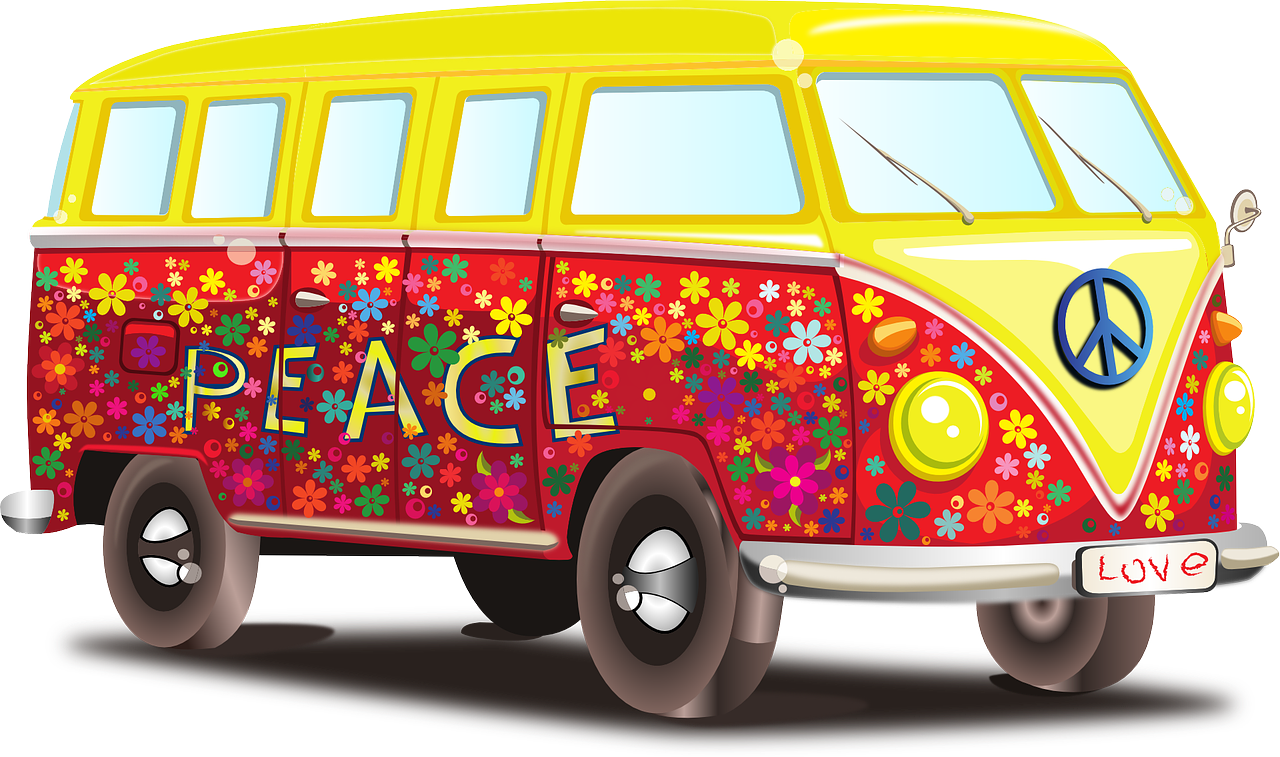
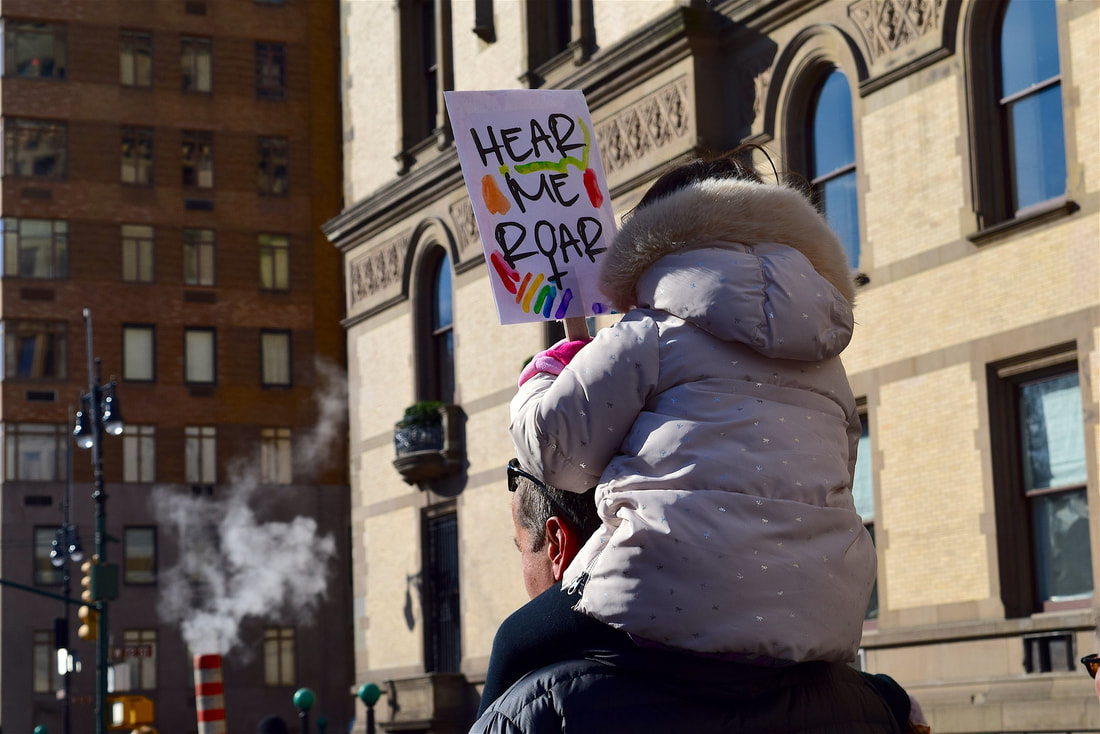
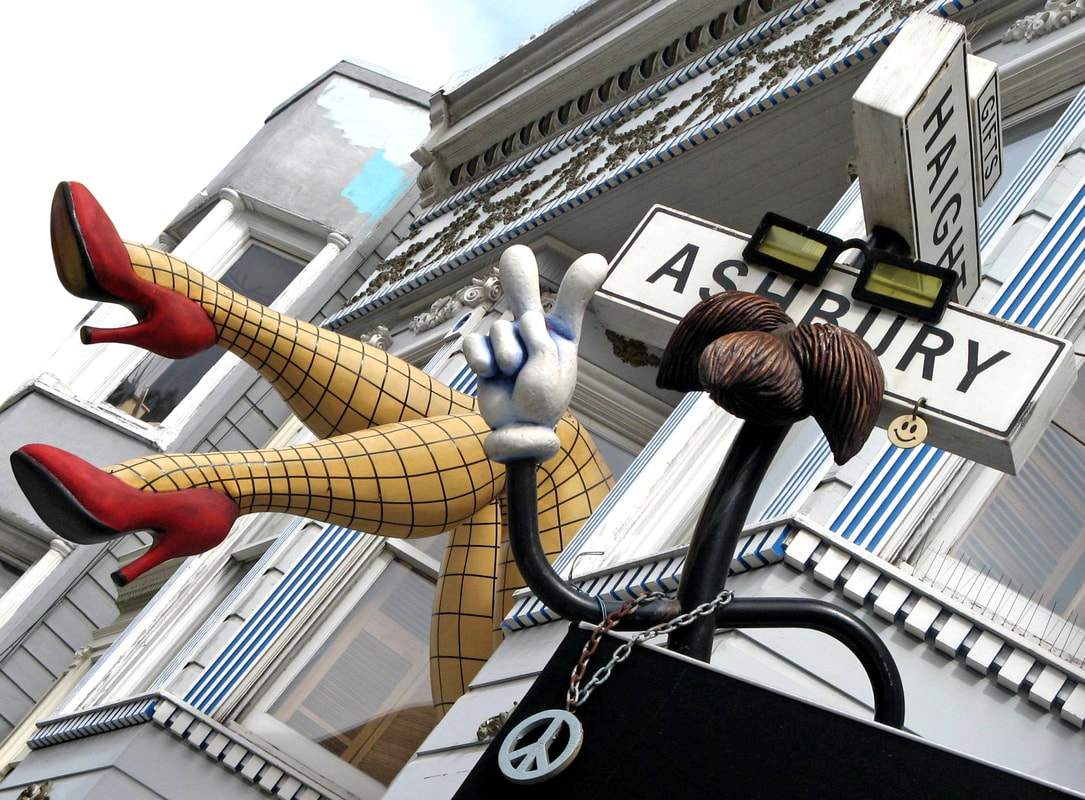
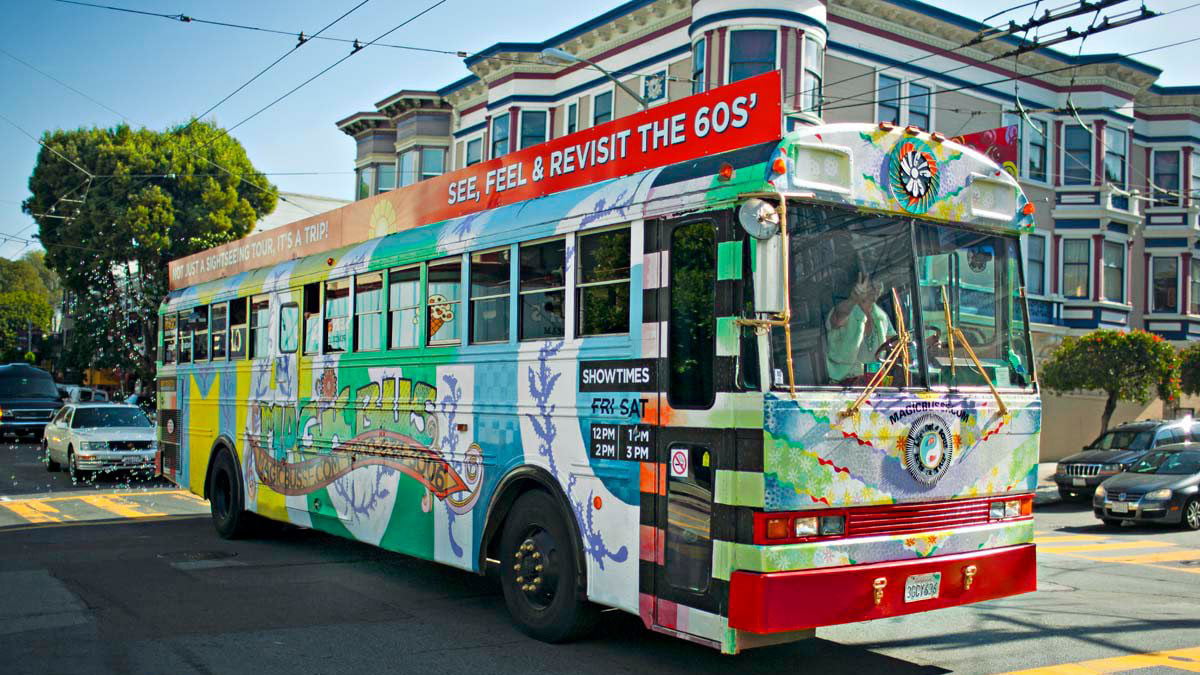
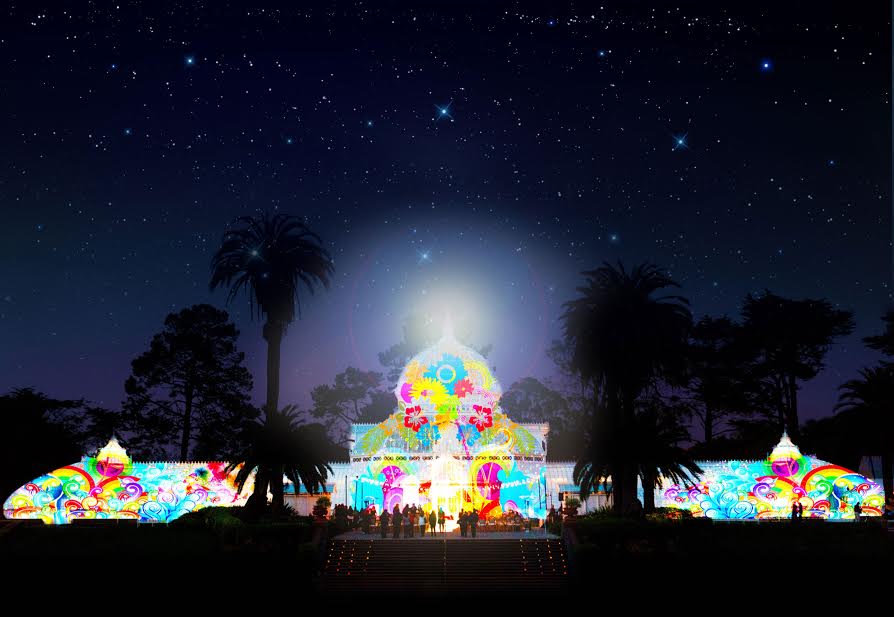

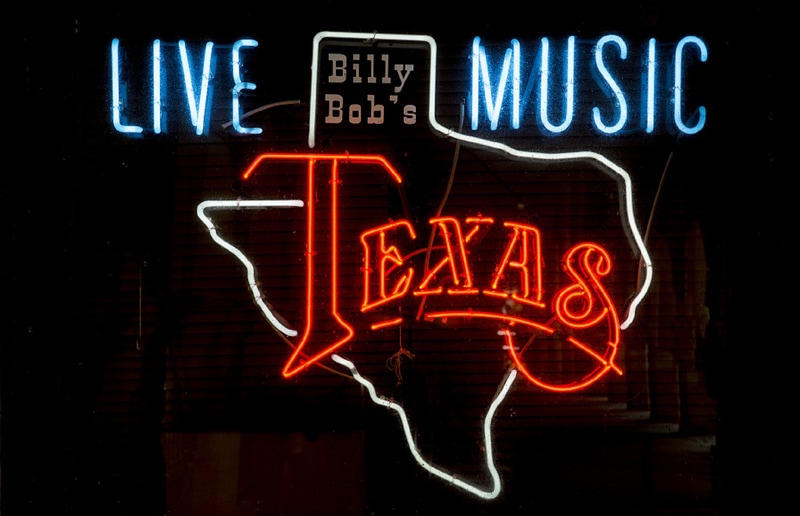
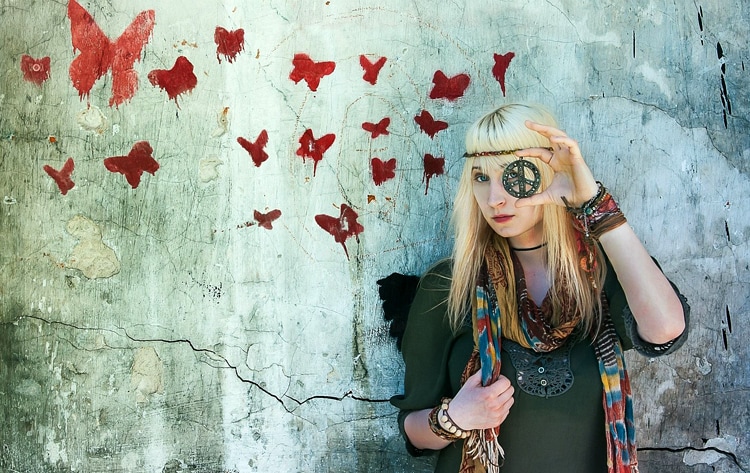
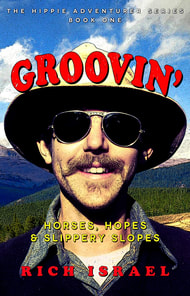
 RSS Feed
RSS Feed